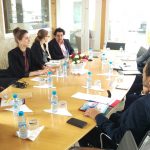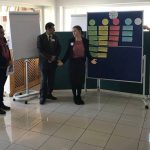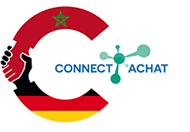
Chamber and Association Partnership Project Morocco
Morocco’s economy is characterized by stable high growth rates and low inflation. Also due to its geographical location, good infrastructure and low labor costs, Morocco represents the most competitive country in North Africa. Nevertheless, the number of German buyers investing in Morocco has been low so far.
In order to bring German and Moroccan business closer together, the German Federal Ministry for Economic Cooperation and Development, through sequa gGmbH, is funding the chamber and association project “Materials Purchasing and Supply Chain Management for Industrial Companies in Morocco”, which will be implemented by BME and EMA on the German side and AMCA (purchasing), AMICA (automotive) and ASMEX (export) on the Moroccan side, initially from 2017 to 2020. In this project, the Moroccan partner associations will be brought closer to German structures and their consulting services will also be expanded for German buyers, supply chain managers and logisticians.
The aim of this CIP project is to strengthen the competitiveness and international orientation of Moroccan companies by expanding the competencies and structures of the three Moroccan partner associations. They will thus become demand-driven intermediaries and actors for an internationalization of their member companies along the cross-border supply chains.
In this pilot project, an institutional network of chambers of commerce and industrial associations is familiarized with German structures and Moroccan private enterprise is given sustainable support in its entrepreneurial activities. SMEs in particular benefit from the services offered as part of the project. No Moroccan or other Arab associations are yet represented in the International Federation for Purchasing and Supply Management (IFPSM), which shows that the topic of purchasing, procurement and supply chain management can still be successfully and sustainably positioned here.
Association Marocaine de la Communauté Achats (AMCA)
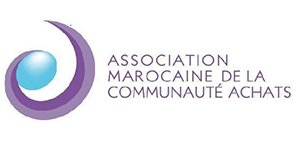
Founded in 2012, the AMCA association is still in the process of being established, with around 100 members so far, mainly from the mining industry. The organization supports companies in optimizing their purchasing and promotes the exchange of experience. AMCA is driven by the idea of increasingly promoting the function of purchasing in Morocco – especially among Moroccan companies, in order to position it as a strategic function. In this regard, AMCA wants to appear as a competence pole for purchasing, which can guarantee the know-how transfer in purchasing between members and partners permanently and constantly up-to-date.
To this end, AMCA organizes, among other things, congresses on topics such as professionalization of buyers and purchasing. Furthermore, there is an online platform to quickly disseminate important information and events within the network of members. More information about the association can be found at: www.amcamaroc.org.
Association Marocaine Pour L’Industrie Et Le Commerce Automobile (Amica)
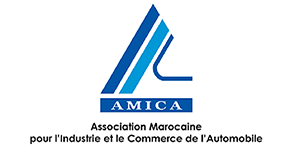
AMICA was founded in 1974 and comprises 160 Moroccan and international companies active in the automotive sector as suppliers of cables and car seats, among other things. About two thirds of the member companies are small and medium-sized enterprises. The association sees itself as an interface between market participants, industrialists, public bodies and business institutions (associations and international organizations). Its tasks include the development of business opportunities for the automotive sector in Morocco as well as the qualification and improvement of export conditions for its members, including further training measures, industry-related studies, the fight against the informal sector and product counterfeiting, and the accompaniment of potential investors in Morocco. For more information about the association, please visit: www.amica.org.ma
Association Marocaine des Exportateurs (ASMEX)

The Moroccan export association ASMEX was founded in 1982 and has 349 direct and 9100 indirect members. As a multisectoral association, ASMEX brings together all industries, but through its members has a focus on agriculture/food, textiles, handicrafts, trade and services. ASMEX promotes exports and the integration of Moroccan companies into international supply chains. In addition, ASMEX represents the interests of its members vis-à-vis the Moroccan government, as well as foreign instances. Unlike AMICA, ASMEX operates across sectors and gathers all individuals and legal entities in Morocco involved in export and international trade. These include companies, communities of interest, cooperatives, associations, and national and regional associations from Morocco. In addition to lobbying, ASMEX offers its members services such as consulting and information services and training and a virtual export platform for buyers. For more information about the association, please visit: www.asmex.org
Bundesverband Materialwirtschaft, Einkauf und Logistik (BME)
Since its foundation in 1954, the BME has been established as a professional association for buyers, supply chain managers and logistics specialists in Germany. It sees itself as a service provider for its members, who come from all sectors of the German economy.
Its objectives include the transfer of know-how through a constant exchange of experience, the training and further education of qualified personnel (both nationally and internationally) and scientific work on new methods, processes and techniques. With its involvement in China as well as in the countries of the Western Balkans, the BME has already accompanied such a path towards more competitiveness as envisaged by this CIP project elsewhere. Further information about the association can be found at: www.bme.de
Project objective
The partner associations have expanded their competencies and structures and are demand-oriented intermediaries and actors for an internationalization of their member companies along the supply chains.
Outcome 1:
The Moroccan project partners and their member companies are sensitized to the topics of purchasing, supply chain management and logistics as well as to purchasing and supply processes.
Outcome 2:
Capacities in the partner associations are built.
Outcome 3:
Demand-oriented services and qualification measures to strengthen competitiveness and internationalization have been established.





